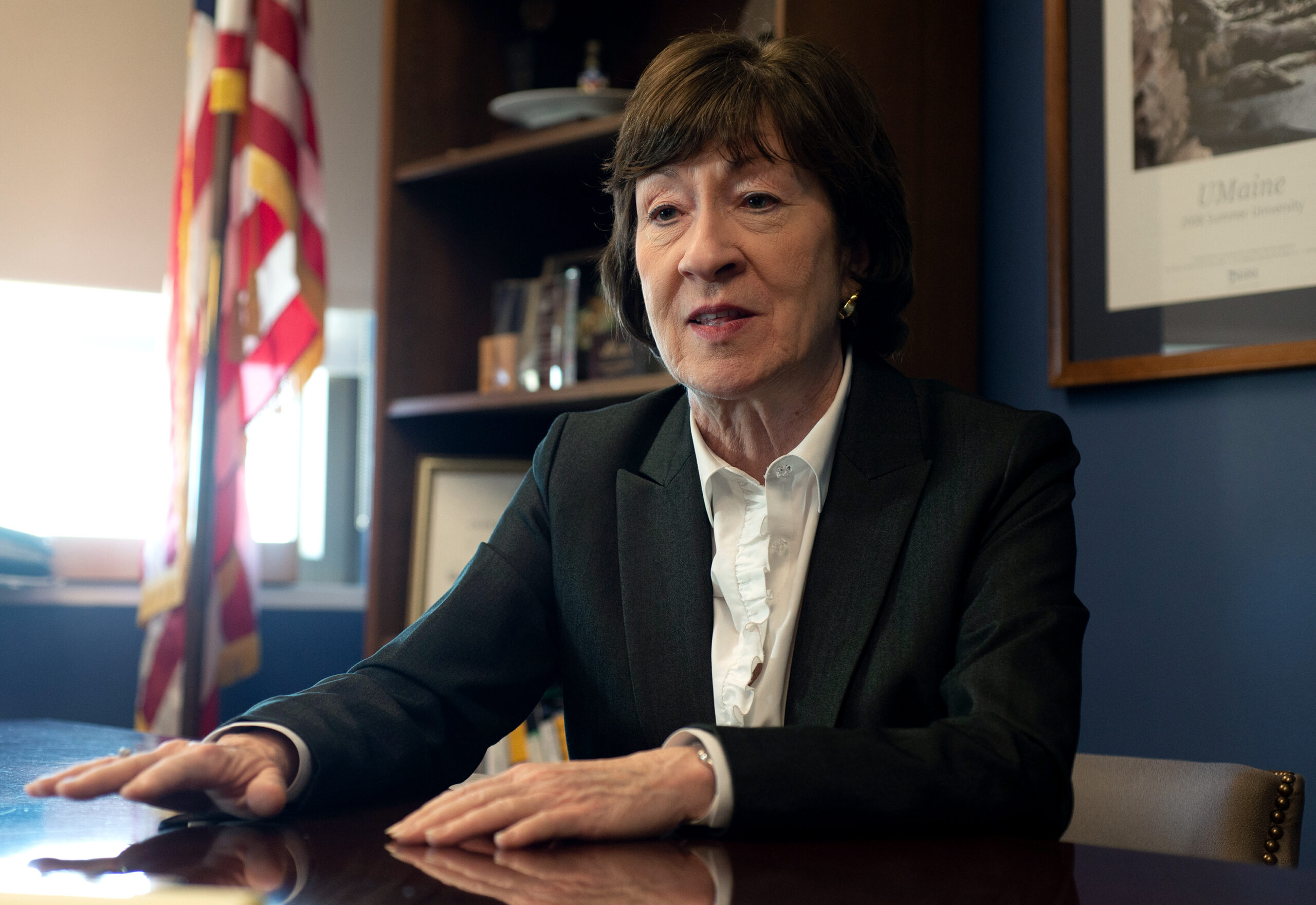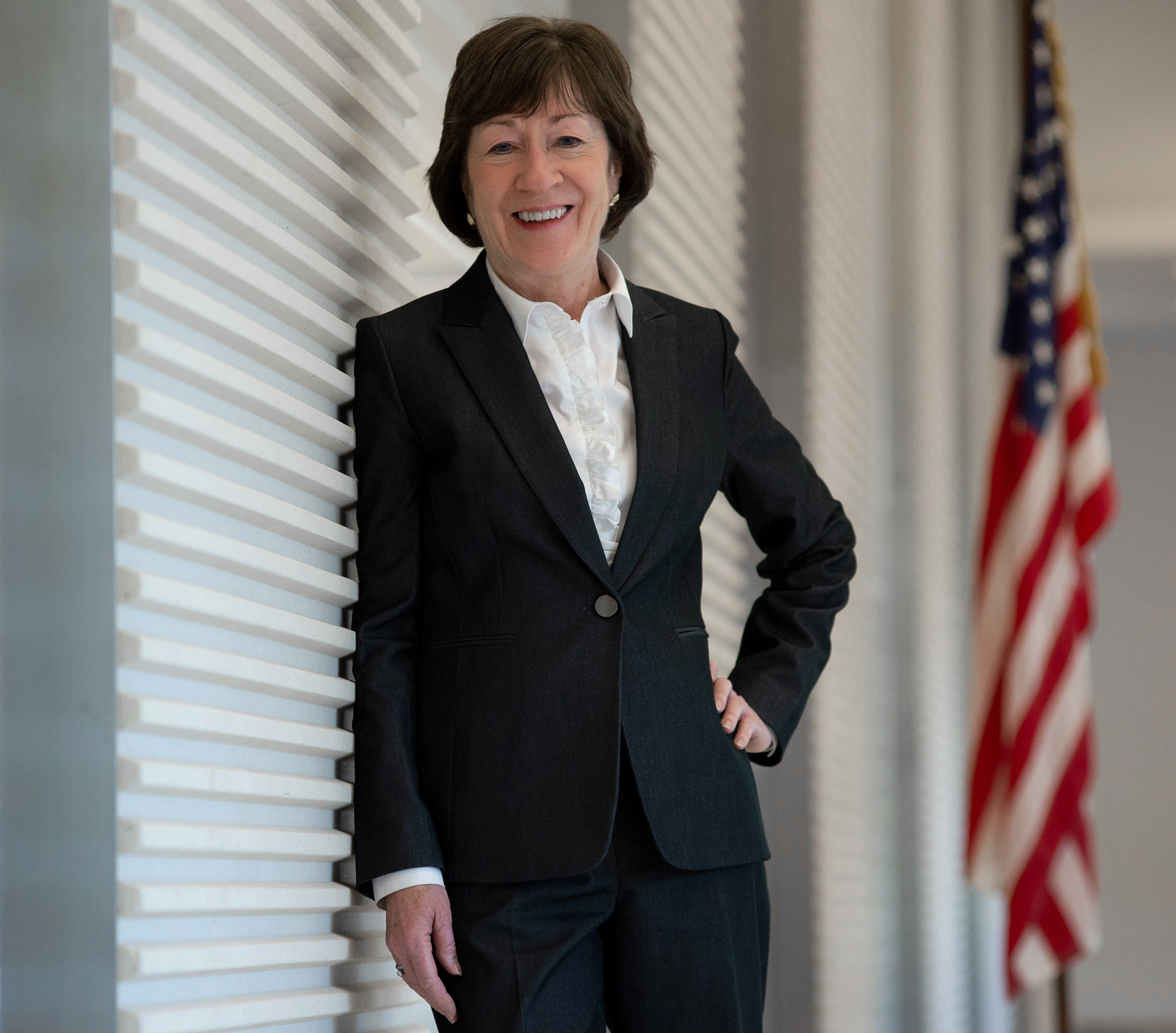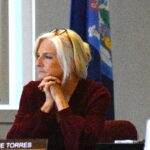
Democrats are mobilizing against her. She angered members of her own party last year, then Republicans got wiped out in Maine’s 2018 elections, leaving U.S. Sen. Susan Collins the last one standing in all of New England’s congressional delegation.
After the divisive era of Gov. Paul LePage, who urged supporters to reject her as she considered a run to replace him last year, the 65-year-old who has polled as Maine’s most popular politician — until this year — thinks the Maine Republican Party needs to rebuild from the center.
Despite Democratic backlash to her October vote for U.S. Supreme Court Justice Brett Kavanaugh and Republican frustration in her 2017 move to preserve the Affordable Care Act, she said in a Friday interview in her Bangor office that she “absolutely” would have won if she were up for re-election this year.
[Subscribe to our free Daily Brief newsletter for the latest on Maine politics]
“Groups on the far left and far right demand 100 percent of compliance 100 percent of the time,” said Collins, who describes herself as a principled coalition builder. “They’re never going to have that from me.”
Collins has transcended party lines in Maine before. But it will be harder to do that when she is up for re-election in 2020. She hasn’t committed to running, but she would do so in a political maelstrom.
President Donald Trump and LePage have normalized dialogue rooted in anger, and Republicans and Democrats have firmly planted themselves with party cohorts. It didn’t go well for Republicans in Maine this year, when Attorney General Janet Mills won the race to replace LePage and Democrats swept into power in both legislative chambers.
Collins said Republicans should take lessons from outgoing Maine Senate President Mike Thibodeau, R-Winterport, who often worked with Democrats against LePage and drew the governor’s ire in bruising budget battles in 2015 and 2017. The latter led to a state shutdown.
“He got a lot of criticism from the governor, but that’s the approach the people of Maine want to see,” she said — referring to someone like her.
Liberals have long been convinced that Collins’ moderation is more a branding exercise than authentic. They argue that she needs to be bolder in defying her party, especially after her vote to confirm Kavanaugh, who was accused of sexual assault.
[Susan Collins to vote yes on Kavanaugh, effectively ensuring his confirmation]
Mike Tipping, a spokesman for the progressive Maine People’s Alliance, which is part of a multi-million-dollar fundraising effort to boost Collins’ 2020 opponent, said “it’s on Susan Collins” if the new court restricts health care or abortion access as a result of her vote for Kavanaugh.

U.S. Sen. Susan Collins is the last Republican standing from New England in Congress. (Linda Coan O’Kresik | BDN)
“Sen. Collins has to decide, is she first and foremost a Republican, or is she a senator from Maine?” said Sen. Shenna Bellows, D-Manchester, who lost to Collins by more than 223,000 votes in 2014.
But Kevin Raye, a moderate Republican who was president of the Maine Senate and served as U.S. Sen. Olympia Snowe’s chief of staff, said Collins’ support from most constituents doesn’t hinge on one issue.
“You have to look at the totality of her time in office,” Raye said. “There’s no question she has, at times, angered people on both sides, because she’s not easily pigeonholed.”
[Collins announces support for GOP tax bill]
Last July, Collins angered Republicans and was feted by Democrats for her vote against repealing the Affordable Care Act. After that, a shadowy poll that aimed to dissuade her from the governor’s race showed that six in 10 Republicans in Maine disapproved of her.
Collins faced myriad protests as Republicans considered a controversial tax cut bill. In December, she voted for it and protesters, some of whom were arrested, crowded her Bangor office. The same thing happened in the lead-up to her October vote for Kavanaugh.
Disillusioned by what she eventually called a “caricature of a gutter-level political campaign” in a lengthy speech, Collins declared her support for the conservative judge in a career-defining decision. On Friday, she recalled the protests and threats as ineffective and “unlike anything I’ve ever experienced in all my years of public service.”
Since then, there have been signs that her support has reshuffled along party lines. A recent poll from Critical Insights pegged her just behind independent U.S. Sen. Angus King at 52 percent approval, seeing an 11-point dip among women during the past year, though a New York Times poll in October found majority support for the Kavanaugh vote in Maine’s 2nd Congressional District.
After the vote, two letters were sent to her Bangor home — one said it was contaminated with ricin and the other with Anthrax — and a New York man was charged with threatening her. She was bombarded with calls and messages, many violent, from people who threatened to kill and rape her and her staff, causing one of them to quit. Collins had to be escorted virtually everywhere by police in the days surrounding the vote.
[Writer said letter sent to Collins’ Bangor home contaminated with ricin]
“There’s this idea, if you want to impact something, you sit down until you get arrested, and that somehow that’s going to alter the decision-making of a conscientious legislator like Susan Collins,” said Lance Dutson, a former Collins spokesman. “The fact is, it isn’t.”
Still, Collins knows it would be “easier” for her to follow a straight-party line, but it would be exploitative, and she said it isn’t what her constituents want. “In fact, I think that’s one of the things wrong with our politics today,” she said.
She doesn’t view herself through the same lens as other Republicans and isn’t threatened when her constituents replace them with Democrats. That happened to U.S. Rep. Bruce Poliquin of Maine’s 2nd District, who lost his second re-election bid to Assistant Maine House Majority Leader Jared Golden, a former Collins staffer who played up his connection to her in ads.
Now, Collins is planning to stay the course as Democrats promise to make her a top 2020 target. The group publicly mulling runs against her includes Susan Rice, the former U.S. ambassador to the United Nations — though she doesn’t live in Maine now — and House Speaker Sara Gideon of Freeport.
“I will be prepared,” Collins said of a possible challenge. “I’ll be ready for a tough opponent, just as I’ve been ready for tough opponents in the past.”
This article originally appeared on www.bangordailynews.com.







